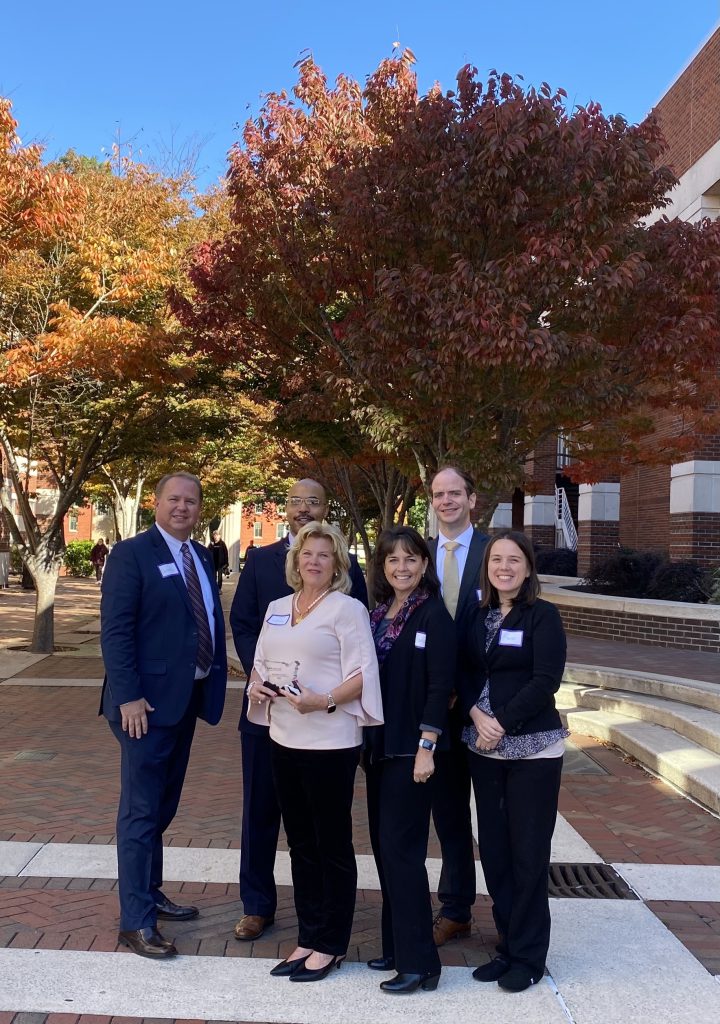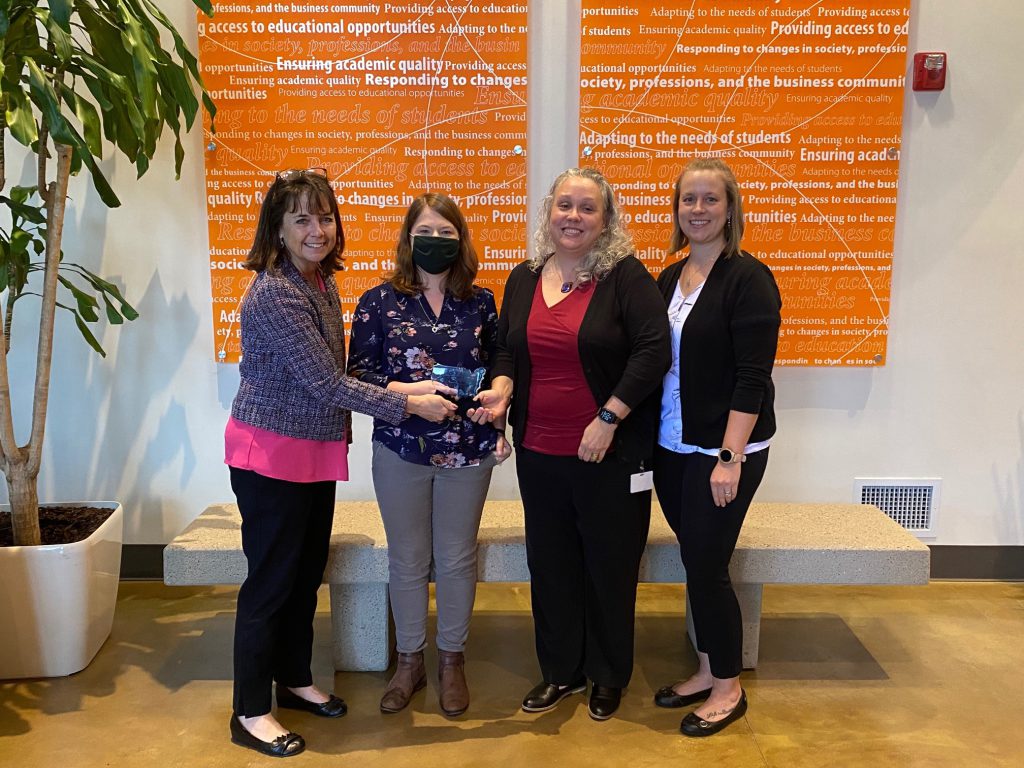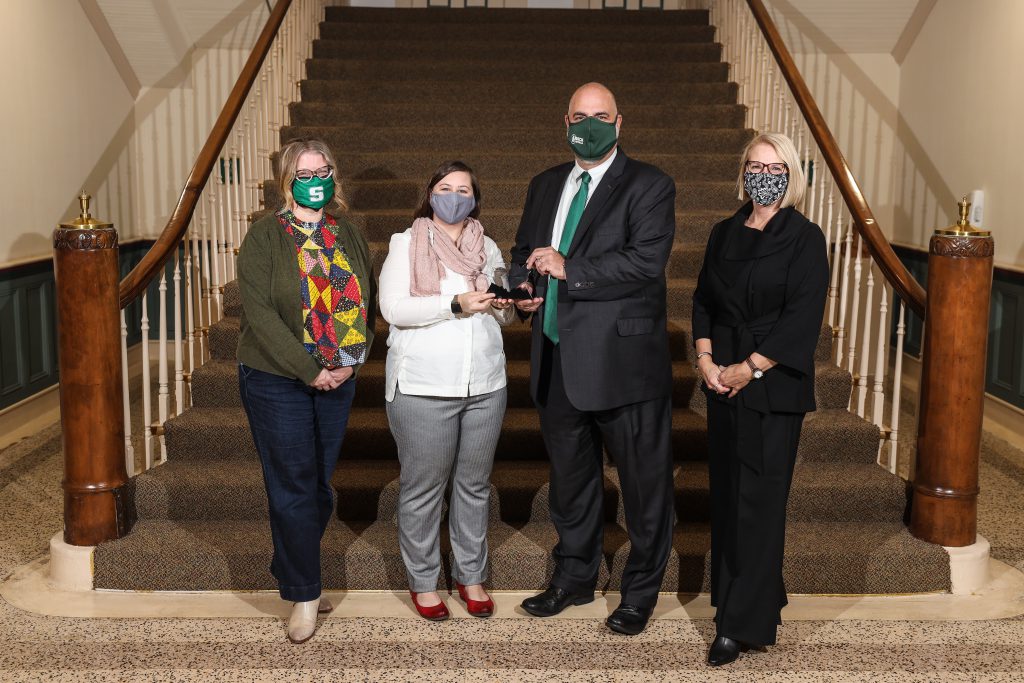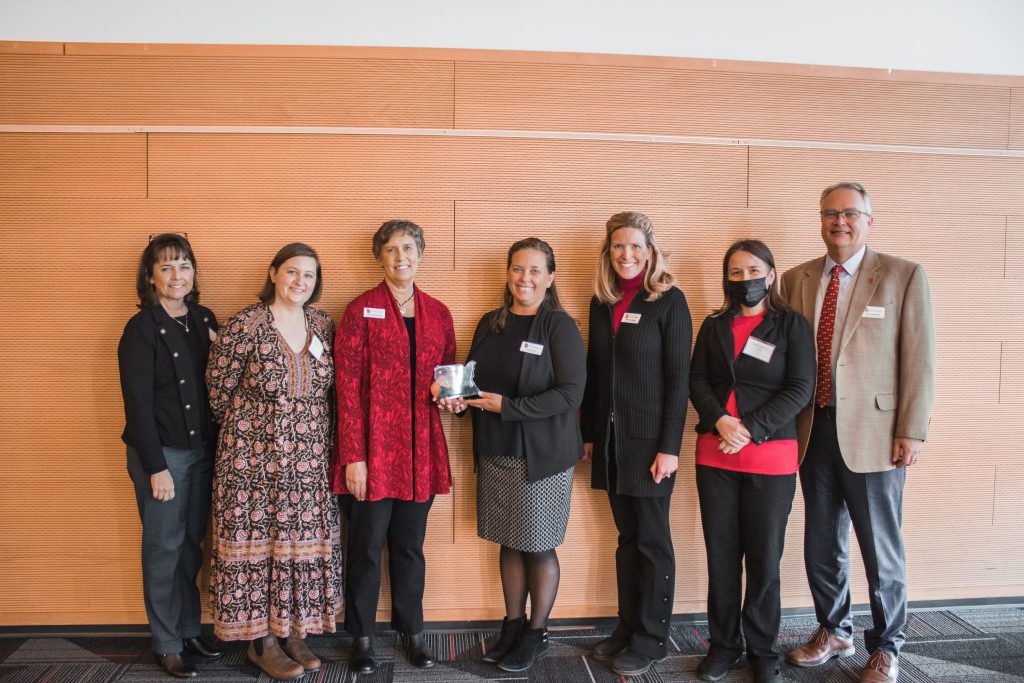Announcing the 2021 SANsational Award Winners
Published by: WCET | 12/9/2021
Tags: Policy, SAN, State Authorization, WCET Awards
Published by: WCET | 12/9/2021
Tags: Policy, SAN, State Authorization, WCET Awards
Institutional procedures to comply with state and federal law are unique to an institution’s activities and administrative structure. Regardless, much can be gained from observing the work of exemplars and sharing practical strategies deployed at other institutions. The State Authorization Network’s annual SANsational awards do just that.
These awards represent comprehensive work to answer a difficult state authorization compliance challenge. Winning projects provide tangible examples of systems or procedures which can be adapted by other institutions. They represent solutions which meet requirements and needs of regulators, the institution, and most especially students.
SAN members may self-nominate their institution or organization annually. An esteemed committee composed of talented compliance professionals reviews and selects winning projects. 2021 nominations were accepted in the following three categories:

Why comply? Student location is the pivotal first step to complying with expectations of the higher education triad partners: States, federal government, and accrediting bodies. If an institution can’t identify the location of its students, it will not know how to comply with applicable state rules. Holding appropriate State Authorization where institutional activities occur also serves as one qualifying criterion to participate in Title IV HEA programs. Furthermore, reporting student location and experiential learning placement data are important components for participation in the State Authorization Reciprocity Agreements (SARA).
East Carolina University (ECU) is a public four-year institution connected to the University of North Carolina System. ECU offers 212 undergraduate programs, over 90 graduate and doctoral programs, and 125 online only programs and certificates. The institution serves over 28,700 students from all 100 counties in North Carolina, 47 states, and 99 counties.
Charlene Lee, ECU’s SARA Compliance Specialist, saw a regulatory compliance need and worked with a campus-wide team to revise ECU’s student location tracking procedures. Charlene and her colleagues instituted a system that identifies the location of the student at the time of admission and every time thereafter as they register for classes. Students cannot opt out of the question. This information has supported ECU’s general compliance work to:
View Charlene’s presentation about this project to hear more about the steps and inner mechanics of this student location solution.

Why comply? In July 2020, federal rules requiring notifications to students enrolling in programs which may lead to a professional license were expanded to all students, regardless of modality. Institutions who participate in federal title IV programs are required to publish public and then issue direct disclosures for prospective and matriculated students.
Franklin University is a private, non-profit institution that was founded in 1902 as one of the YMCA’s Schools of Commerce, where working adults attended night courses to advance their careers. Franklin was an early adopter of online programming and currently serves most of its over 6,000 students online, while continuing to offer a small number of classes in face-to-face format at its campus located in downtown Columbus, Ohio. The institution offers academic programming choices that lead to a variety of credentials, including micro credentials, certificates, associate’s degrees, bachelor’s degrees, master’s degrees, and doctoral degrees.
Kate Grimes, director of academic compliance, and Sarah Christian, accreditation specialist, with Franklin’s Accreditation and Authorization Office, utilize a variety of technical solutions to manage compliance with State Authorization. Their portfolio includes Customer Relationship Management (CRM) campaigns that allow them to effectively manage communications specific to professional licensure programs and direct disclosure notifications.
When Kate and Sarah reviewed their procedures to comply with the July 1, 2020 federal regulations, they learned that not only was the University switching to a new CRM platform, but the structure of the original campaigns was causing major systems problems and they could not be readily transferred to the new platform.
Their division, along with the CRM team, took this as an opportunity to improve the design and structure of the notifications that are automatically sent to students for Franklin’s licensure programs. The project greatly benefited from cross-departmental teams working together and helped build a deeper understanding of what was being communicated, when, and why.
Hear Kate and Sarah share about their collaboration and steps to comply with federal professional licensure disclosure regulations in their SANsational Presentation.
Why comply? Per East Carolina University’s winning project, we know that the location of educational activities serves as critical information for understanding applicable rules in a State and provides an important checkpoint to participation in Title IV HEA programs. Additionally, data reporting is a condition for participation in the State Authorization Reciprocity Agreements (SARA), the current national reciprocal agreement which offers eligible institutions a more streamlined process to manage institutional approvals pertaining to distance education activities in participating U.S. States and territories.

Slippery Rock University (SRU), founded in 1889, is a member of the Pennsylvania State System of Higher Education (PASSHE). Located an hour north of Pittsburgh, this four-year, public, coeducational, comprehensive university offers a broad array of undergraduate and graduate programs to more than 8,500 students.
LisaMarie Weinzetl, with SRU’s Compliance Office, is charged with gathering information on hundreds of experiential learning activities (ELA) from dozens of professors across campuses to ensure compliance with federal and state laws as well as SARA requirements. Compliance with SARA requirements, enables SRU to continue to employ the agreements’ economic and efficient methods for securing approval for distance education and ELA in other member states.
The first effort was relatively low tech and utilized the collaborative working relationship with the Office of Institutional Research. Faculty were sent a blank spreadsheet to complete. Once returned, the Compliance Office staff would then cross reference the completed spreadsheets with class rosters to ensure information was gathered on all registered students. This once burdensome process has evolved to a mostly automated one that now requires minimal time and effort from faculty.
The current process involves running a report that creates an Excel workbook that includes a verification form for every faculty member supervising ELA.
Questions regarding SRU’s project may be directed to Lisa at lisa.weinzetl@sru.edu.

Why comply? As shared in the above descriptions, compliance is not a choice. It is the law, and regardless of whether one agrees, it must be followed. There are numerous regulations to navigate at both State and federal levels. Regardless, compliance staff must digest and conceive of solutions to help the institution abide by these rules, all while juggling the tricky task of mobilizing a campus community to contribute and understand requirements intended to protect their consumer, students. This SANsational project touches on multiple elements of compliance: location, physical presence, professional licensure approval, and disclosures; AND then offers a streamlined portal to share information and collect data from multiple campus community members.
Rooted in South Dakota’s value of responsible stewardship, the University of South Dakota (USD) developed a sustainable digital data matrix at minimal cost. This matrix includes four tools to compile, track, disseminate, and assess the myriad of data required to ensure compliance with federal regulations, state consumer protection requirements, and SARA policies.
This matrix came about when LaDonna Rodvold, USD’s state authorization specialist and Julie Barnett, the director of continuing and distance education, were seeking opportunities to create efficiencies, integrate data, and then make data more meaningful and accessible throughout the university.
They focused on utilizing free and existing applications available across the system and their productive working relationships with 202 undergraduate and 84 graduate programs in the College of Arts & Sciences, School of Education, Knudson School of Law, Sanford School of Medicine, School of Health Sciences, Beacom School of Business and College of Fine Arts. In total, USD has 83 programs designed to lead to professional licensure and 35 online degree and certificate programs.
LaDonna and Julie’s institutional colleagues can readily access data and make appropriate updates as requested by the compliance staff through the following series of tools:
Click to learn more from LaDonna and Julie about their unique “Knowledge Base” supporting more effective cross-institution compliance.
On behalf of the SANsational Selection Committee and SAN team, we’d like to offer our admiration of each submission and encourage our members to keep self-nominating their projects!
The award selection process has become more competitive each year, given the increase in quality of each submission. An archive of previous years’ winning projects lives on SAN’s website.
Please visit us online to learn more about this year’s winners and view their recorded project presentations: wcetsan.wiche.testing.brossgroup.com/resources/2021-sansational-award-winning-projects